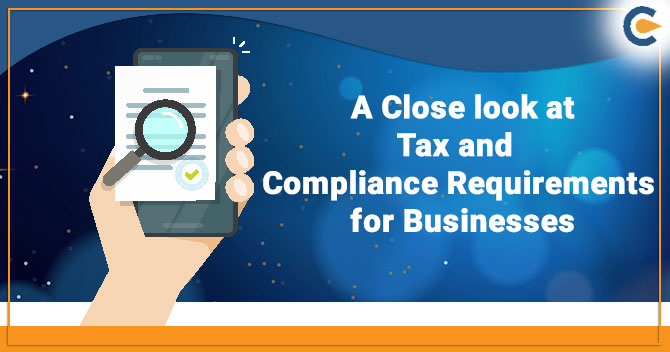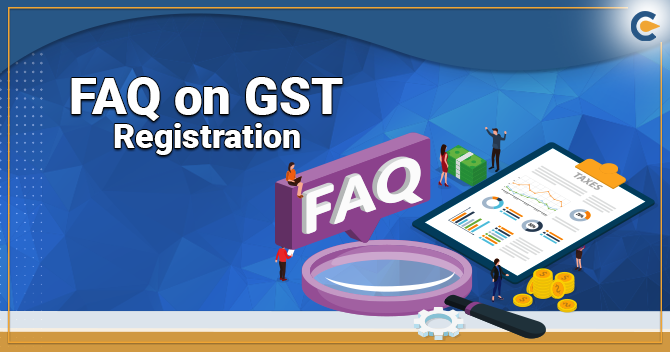Garnering a customer base takes a lot of effort even if your company’s offerings are outstanding. As a business owner, there are a host of strategies that you have worked upon to effectively manage your business. It is necessary to take Tax and Compliance into account when it comes to managing a business. Any negligence on this part could be detrimental to your growth. Therefore, in this write-up, we have mentioned some mandatory tax and compliance prerequisites that every business owner needs to be aware of.
GST registration and filing
The Good and Services Tax has been introduced a few years back and now it covers all almost all forms of business in India. Every service provider and business owner that deals with the trading of goods is mandated to charge GST on it. The GST rates differ industry-wise.
The requisite of filing GST return is also based on the nature of the business you are involved with. But whatever may be the scenario, you are supposed to register under GST and file GST returns as per guidelines rendered by the government.
Filing business tax returns
You run a business to generate a profit, which can be termed as the income of your business. You are supposed to file business income tax returns reflecting the income and pay tax on it as well. Businesses are also mandated to pay advance tax every quarter. As a business owner, you have to disclose your business income before the authority by filing tax returns for the same.
Filing TDS returns
Businesses are obligated to deduct tax before making any payment, be it fees to consultants or salaries to employees. TDS (Tax Deduction at Source) is needed to be deducted on the payment in accordance with applicable TDS rates. The deducted TDS amount is further routed to the government account & TDS returns have to be filed for the same.
Key factors to consider while deducting TDS
- The individual incurring the expenses must possess a legit PAN card and a PAN of s person receiving the income. The TDS rate will increase in case of the non-availability of the PAN card.
- The TDS rates must be in accordance with a section rendered by the IT Act.
- TDS is not applicable in the given scenarios:
- If the receiver provides a self-declaration stating that he/she had made the required investment in Form 15/15H or
- There is an exemption certificate granted by the Assessing officers.
- No TDS is deductible from any payment made to RBI or any corporation operating under the central Act.
- The information regarding the already paid TDS is available on the IT department’s website. The taxpayer needs to download form 26AS to determine such information.
- TDS will come into play when the threshold limit for the payment is surpassed.
Read our article:Get Your New GST Registration in Just Few Steps
Filing ROC returns
Every enterprise that comes under the ambit of Companies Act 2013[1] is supposed to file yearly returns to the RoC, i.e. Registrar of Companies. These RoC returns refer to the type of return that consists of a P&L account, balance sheet, yearly return, and compliance certificate.
Important Points to Remember
- Balance Sheet and P & L Account must be filed as two independent documents with separate web-based forms.
- Each web-based annexed with mandatory attachment(s) should be in line with the permissible size limit, which is 2.5MB to be exact.
- Balance Sheet and P & L Account and yearly return are filed as annexure to the relevant web-based forms. A scanned copy is not preferable owing to the increased file size. Hence, it is advisable to convert the text file/Excel sheet via a suitable converter (business users can leverage the built-in converter available on the MCA’s portal) and upload such annexures as PDF documents.
- The MCA database in respect of Paid-up and Authorised capital requires to be authenticated by the relevant companies, as it may be incorrect. The companies must apply for correction of Master Data in case of any error detection. In the meantime, the companies must declare the exact sum of authorized and paid-up capital in the respective yearly filing forms.
Maintaining books of account
It is pertinent for a registered enterprise to maintain books of accounts. Bookkeeping is certainly mandatory for the registered entity but it is also required by the tax authority and investors from time to time. You must manage your accounts by keeping constant tracking of your income and expenses.
Legalities associated with maintenance of books of account
The book of account must be mandatorily maintained;
If the sale/gross receipt/revenue from a profession or a business is more than Rs 25,00,000 or the income generated from a profession or business surpasses Rs 2,50,000 in any of the last three years
Following professions need to abide by this rule:
- Legal
- Engineering
- Accountancy
- Medical
- Interior decoration
- Technical Consultancy
- Company Secretary
- Film artist
Maintaining a book of account is compulsory for Individuals from the above-mentioned profession who earned more than Rs 2,50,000 in the last 3 years. The same norm also applies to a new profession in case the income is more than Rs 2,50,000.
What Company Act has to say in this regard?
Every company is entitled to maintain books of accounts, at the premises none other than the registered office or any other avenue recommended by the BODs. RoC’s consent becomes mandatory in the case where the business decided to address such an obligation at a place other than the registered office. Companies are allowed to leverage the electronic medium to undertake such an activity.
Conclusion
So these are some mandatory tax and compliance-related affairs that every entrepreneur should look into. Taxation is indeed one of the most critical functions to handle any business. A well-established business usually encounters a wide range of taxes and compliances. This is one of those areas that must be handled by professionals who are well versed in applicable tax laws. The growth of your business also depends on how effectively you address the tax and compliance affairs.
Read our article:How to apply for GST registration certificate online?











